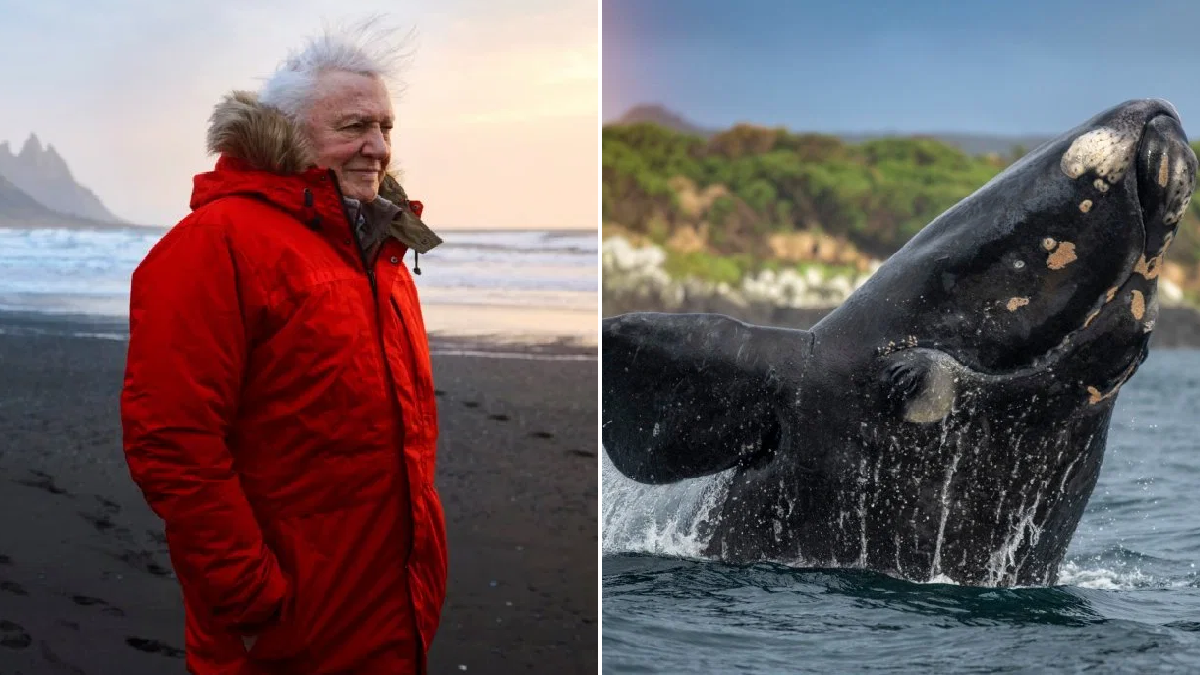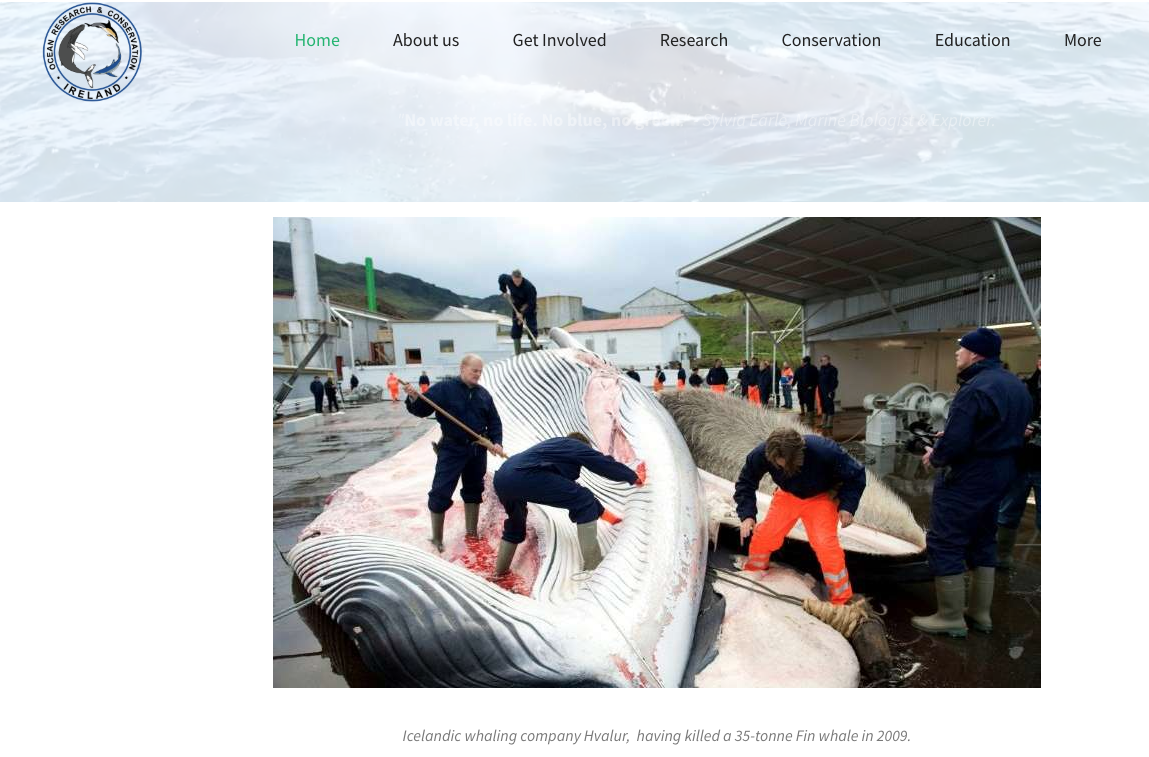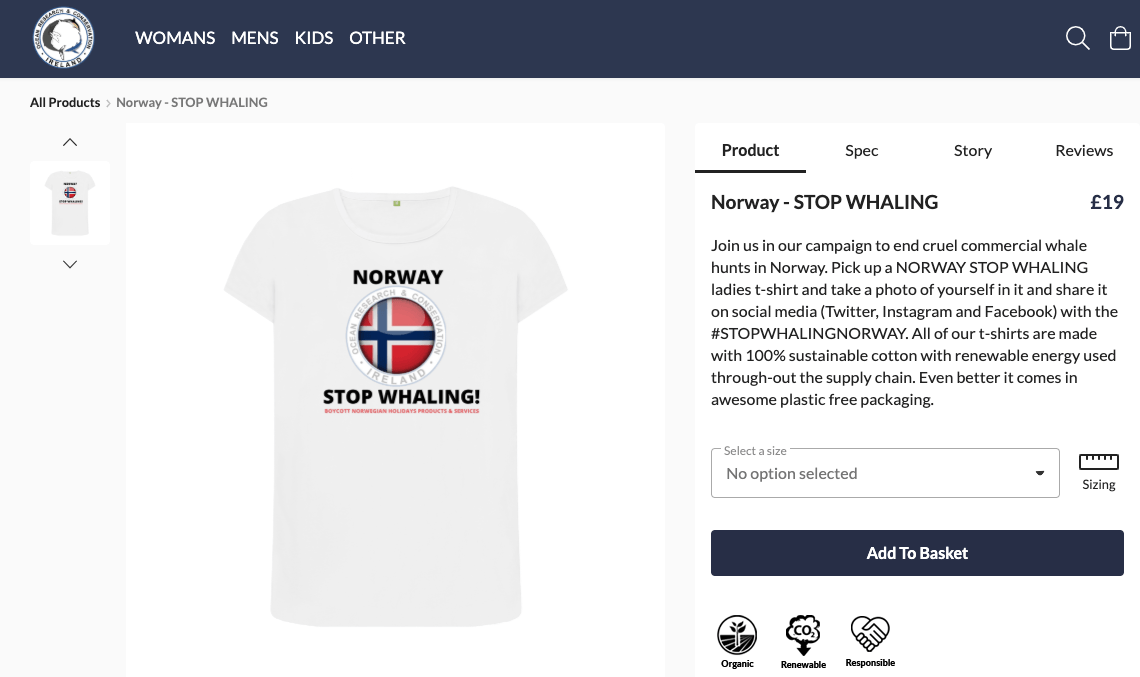Sr. David Attenborough Highlights Norway, Iceland and Japan's Commercial Whaling Industry.
In the new series "Blue Planet II- Seven Worlds- One Planet", Sr. David Attenborough sends an important message to the world that it is time to end commercial whaling in Norway, Iceland and Japan.
Over the last five decades, Sr. David Attenborough has shared the natural wonders of the planet with audiences across the globe. Now in his most recent series Blue Planet II- Seven Worlds - One Planet,
he has highlighted the cruel and unnecessary hunting of whales for the consumption of highly toxic whale meat, in addition to pushing the agenda to end plastic pollution.
Sr. David, now aged 93 has been particularly effected by the plight of the Southern Right whale ( Eubalaena australis)
, which was hunted to the brink of extinction in the last century.
“ We devised new hunting techniques and use them so mercilessly that we almost exterminated the great whales
,” - Sr. David Attenborough.
The new series isn't the first time Blue Planet has highlighted the impacts of commercial whaling and its impact on well known and loved species such as the humpback whale ( Megaptera novaengliae ).
While Iceland's taste for whale meat seems to be taking a downturn after no whales were hunted in 2019, fears that hunting great whales might re-commence for 2020 are still palpable among the public and scientific community as Iceland has a quota to kill over 2,000 whales that they may push to fill this year. Read more here:
Great concern also exists over Norway's commercial whaling which surpassed Japan and Iceland in its quotas last year, and now officially kills more whales than any country in the world. In 2019, Japan reduced its effort in killing whales, focusing on commercial hunting within their 200 nautical mile Exclusive Economic Zone and moving out of Antarctic waters. Read more here:
Besides for a few countries that allow local subsistence hunting large whales by natives, Norway, Japan, and Iceland are the only countries that hunt large whales for commercial purposes, despite the 1986 International Whaling Commissions (IWC) international ban or moratorium on commercial whaling.
Norway, Iceland and Japan unfortunately continues to ignore the ban. In Norway, 12 commercial whaling vessels remain active and their quotas have consistently increased since 2005. In 2019, Noways quotas were at a record high, despite the fact that demand for whale meat remains low. To encourage whaling, Norways government has sought to encourage the practice through incentives and subsidiaries in research for new uses of whale oil and exporting over 100 tons of whale meat to Japan.
Norway's justification for commercial whaling relies on the myth that whales are responsible for the decline in fish stocks, despite the decline being clearly linked with human impacts, particularly overfishing.
Whaling methods have not progressed in animal welfare standards, similar to the attitude that whales are to blame for the decline in fish stocks and the cruel practice still involves the use of harpoons fired at whales or fitted with grenades which can penetrate up to 12 inches into the whales bodies before exploding or releasing sharp claws to win into the whale's flesh to allow whalers to drag the whale towards the catcher boats. This results in the whales having a slow and painful death.
To make matters worse, more often than not, pregnant whales are caught. Between 2005 - 2015, more than two thirds (68%) of minke whales hunted by Norwegian whales were female and more than 40% of these were pregnant. They also have little care in targeting the correct species and countries who commercially hunt whale can mistakingly kill endangered species such as blue whales. Read more here:
Despite Norway becoming the top whaling country in the world, it has received little or no international attention or diplomatic pressure to end whaling.
Ocean Research & Conservation (O.R.C) will continue to monitor the situation in all three countries, Norway, Iceland and Japan and will update the public on the current situation.
To support our work and to help end commercial whaling, we ask that our followers and supporters visit our online shop and make a one time purchase of an end whaling t-shirt, take a photo or selfie in the t-shirt and repost on Facebook, Twitter and Instagram with the #STOPWHALING and the country you wish to send your message to. E.G. #STOPWHALING #STOPWHALINGJAPAN #STOPWHALINGNORWAY #STOPWHALINGICELAND. We particularly ask residents of these countries to get behind our campaign to end commercial whale hunts.
You can view our campaign t-shirts by clicking here :
SHARE THIS ARTICLE
















